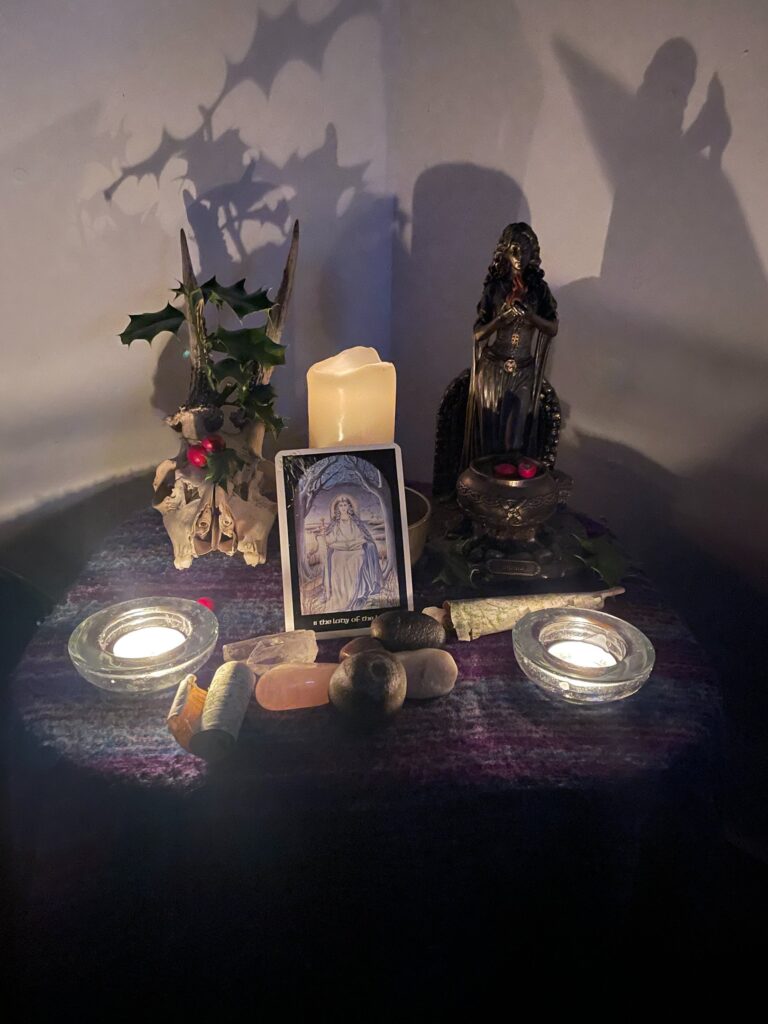Embracing the Spirit of Lughnasadh: A Guide to Celebrating the Seasonal Pagan Festival
As the wheel of the year turns towards August, many spiritual seekers find themselves drawn to the ancient Pagan festival of Lughnasadh. This vibrant celebration marks the beginning of the harvest season, offering a rich tapestry of traditions that honour the bounty of the earth and the turning of the seasons. Whether you’re new to meditation or an experienced practitioner, Lughnasadh invites you to pause and reflect on your spiritual growth and mindfulness practices. In this guide, we’ll explore ways to celebrate Lughnasadh that are both meaningful and accessible, providing you with insights and practices that can be woven into your daily life. Join us as we delve into the heart of this festival and discover how it can nurture your spiritual journey. 🌾✨
Understanding Lughnasadh
Lughnasadh marks a time of gratitude and abundance, deeply rooted in Pagan tradition. This section explores both its historical origins and the significance of the harvest season, providing a context for its contemporary celebration.
Origins of the Pagan Festival
Lughnasadh, a festival steeped in ancient tradition, traces its roots to Celtic culture. It is named after the god Lugh, a deity associated with skills and crafts. The festival was a time for communities to come together, share their harvests, and honour Lugh through games and fairs.
According to druidry.org, Lughnasadh was historically celebrated with feasts and athletic competitions, symbolising both physical and spiritual growth. The festival offered a chance to reflect on achievements and set intentions for the future.
In modern times, Lughnasadh remains an occasion to honour both tradition and personal growth. For many, it is a time to reconnect with nature and appreciate the bounty it provides. This connection to the past, as highlighted by amymilleryogaandwellbeing.co.uk, enriches our understanding and practice of spirituality today.
Significance of the Harvest Season
The harvest season represents a period of reaping what has been sown. It is a time of transition from the growth of summer to the maturity of autumn. Recognising the importance of this season is crucial for understanding Lughnasadh.
According to celticfusiondesign.com, the festival underscores the cycle of life and death, reminding us to live in harmony with nature’s rhythms.
Harvest time is also a metaphor for personal growth. Just as crops are harvested, individuals can reflect on their own personal achievements and lessons learned over the year. This reflection can lead to greater insights and personal development.
In sum, the harvest season is not only a physical gathering of crops but also a powerful symbol of spiritual fruition, inviting us to harvest our own inner growth.
Celebrating Lughnasadh Mindfully
Mindfulness can enhance the celebration of Lughnasadh by deepening our connection with the earth and our inner selves. This section provides practical ways to incorporate meditation and simple rituals into your celebration.
Incorporate Meditation Practices
Meditation can enrich the Lughnasadh experience by fostering a deeper connection to the festival’s themes of gratitude and reflection. Here are ways to integrate meditation into your Lughnasadh celebrations:
-
Set an intention: Begin with a clear focus on what you seek to gain from your meditation practice during this time. Consider what aspects of your life align with the themes of harvest and gratitude.
-
Create a sacred space: Find a quiet, comfortable place, perhaps outdoors, where you can meditate without distraction. Use elements like candles or natural items to enhance this space.
-
Guided visualisation: Use a guided meditation that focuses on the harvest. Visualise the growth and fruition of crops, drawing parallels to your personal achievements.
By incorporating these practices, meditation becomes a tool for spiritual growth, enhancing your connection to the festival’s deeper meanings.
Simple Rituals for Spiritual Growth
Engaging in rituals can bring meaning and mindfulness to your celebration of Lughnasadh. Here are some simple rituals you might consider:
-
Gratitude journaling: Each day, write down three things you are grateful for. This practice aligns with the festival’s focus on abundance and can enhance your appreciation for life’s blessings.
-
Create a harvest altar: Use natural elements like grains, fruits, and flowers to build a small altar. This visual representation serves as a reminder of the earth’s bounty.
-
Shared meals: Host a meal with friends or family, using seasonal produce. Sharing food fosters community and reflects the traditional Lughnasadh feasts.
These practices encourage mindfulness and reflection, promoting spiritual growth through simple, everyday actions.
Join Our Workshops and Retreats
Our workshops and retreats offer a chance to deepen your spiritual practice and engage with the themes of Lughnasadh. This section outlines how these experiences can enrich your understanding and celebration of the festival.
Deepening Your Spiritual Practice
Attending a workshop or retreat can significantly enhance your spiritual growth during Lughnasadh. These experiences offer structured opportunities for learning and reflection:
-
Personalised guidance: Receive support from experienced facilitators who can help tailor practices to your unique spiritual journey. This guidance can be pivotal in fostering mindfulness and meditation skills.
-
Community connection: Engage with like-minded individuals, creating a sense of community and shared purpose. This connection can deepen your commitment to spiritual practices.
-
Focused learning: Participate in workshops that delve into the history and significance of Lughnasadh, offering insights that enrich your personal reflections.
By joining these events, participants can explore new dimensions of their spiritual practice, supported by a nurturing and educational environment.





